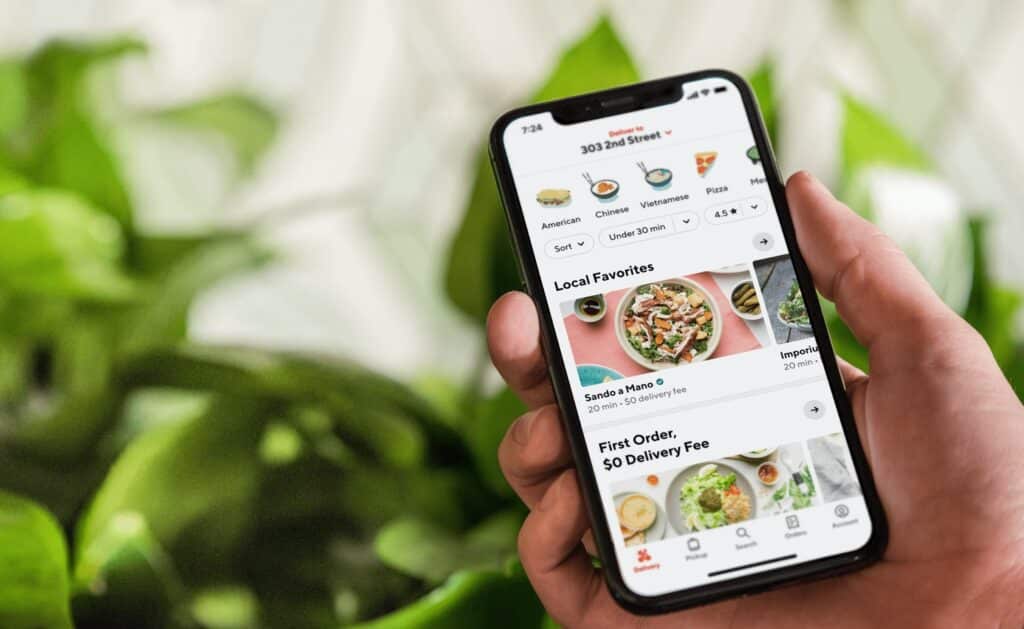
We all know coupon fraud is a constant concern at the grocery store. But who knew coupon fraud could be costing food delivery companies as much as $18 million a year?
That’s what a recent report is estimating, attributing many of those losses to sophisticated fraudsters who are apparently eating pretty well, and paying a lot less than the rest of us.
The digital location identity company Incognia notes that restaurant food delivery has been a booming business ever since the Covid pandemic shut down many in-person dining opportunities. Last year, it says, more than 161 million Americans used an online restaurant delivery service, helping food delivery grow into a $218 billion business.
Many of those customers are taking advantage of coupons and promotions. And many of those coupons and promotions are going to customers who are manipulating systems and bypassing controls in order to get them.
Incognia’s report, “The Essential Guide to Promotion Abuse on Delivery Platforms,” uses data specific to Latin America and extrapolates it to estimate the impact in the U.S. In Latin America, Incognia estimates that 20-40% of transactions on food delivery platforms use some form of coupon. But about 2% involve coupon fraud, many of them involving “bad actors who are systematically abusing promotional activities and stealing large sums of money from these platforms using sophisticated fraud methods.”
And with the top two U.S. delivery platforms, DoorDash and Uber Eats, taking in a combined total of more than a billion dollars a month, Incognia estimates that 2% of coupon fraudsters could be costing those companies alone more than $1.5 million a month – potentially resulting in higher prices for the rest of us.
So how are they doing it? Some ways are pretty simple, and familiar to most anyone who’s even signed up for a coupon. New customer? Provide your email address and we’ll give you a coupon. Not a new customer? Well, provide an alternate email address and you still get a coupon. Next time, create a new email address and have a coupon sent there. And next time, use a temporary disposable email address you’ll never check again after getting that “new customer” coupon.
There’s a fine line there between savvy saving and fraud. But that line doesn’t seem quite so fine when you consider that professional-level fraudsters are automating the process to get a deal on every meal. Incognia says these bad actors are using email address generators, disposable phone numbers, virtual private networks, cloned apps that “allow multiple instances of one app to run simultaneously on a single device,” and device emulators that “simulate the operation of a smartphone or tablet on a computer,” allowing them to “more easily automate the creation and access of multiple accounts.”
And that’s only for introductory, “new customer” offers. It gets even more complicated when it involves coupons offered to maintain customer loyalty. Fraudsters may buy active accounts from other users, or create their own. But in order to get “returning customer” offers, they need to be actual returning customers. “Bad actors know that inactive accounts are monitored and often banned, while moderately active accounts are likely to receive promotion offers to incentivize more orders,” the report reads. So fraudsters often strategically make low-value purchases using these multiple accounts, to keep the accounts active and continue receiving coupons.
But the fraudsters’ location can be a tipoff. If delivery companies find they keep bringing discounted food to the same address, they might become suspicious. So fraudsters tend to avoid the problem by using multiple addresses, picking up food at a nearby friend’s house, or meeting the delivery driver halfway and picking up their food at a neutral central location.
That seems like an awful lot of work to get a few bucks off your delivery order. Do it enough times, though, and it could pay off. “The way these fraudsters maintain hundreds of active accounts and manage their network of delivery addresses is a masterclass in administration and logistics,” Incognia acknowledges.
So how to combat the problem? Well, remember that Incognia is a digital location identity company. And it just so happens that Incognia offers services that can see through manipulation attempts, detect emulators and app tampering, and recognize when requests for coupons or delivery orders are coming from the same device.
It helps when the one identifying the problem is the one with the potential solution. Food delivery coupon abuse is probably not something you’ve spent much time thinking about. But if fewer restaurant discounts for fraudsters means more deals for everyone else, then this is a solution that could prove appetizing to us all.
Image source: DoorDash










